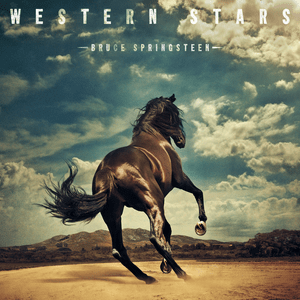
The songs tell the stories of loved lost, failure, hard living and longing. But somehow they are tinged with hope.
Bruce Springsteen released a new album last week and for me that’s always a reason to celebrate.
But this album, his 19th studio album, is something extra special for a few reasons.
First, it’s just really good.
The songs are beautifully crafted, the lyrics are packed with meaning and the album includes oboes, bassoons, French horns and other instruments rarely used on a Springsteen album. He’s evolving and I find that not only interesting but inspirational as well.
The reason this album has extra resonance is that it is being released three months before Bruce’s 70th birthday. That’s an age where most musicians are long past their prime and decades beyond their creative peak.
But there he is, still exploring, still pushing boundaries, still growing. And I find that awe-inspiring.
The best artists are those whose work seem to run parallel to our lives—as if they are somehow writing with us in mind. Of course, that’s not true, but the magic comes because their words and music remain relevant to where we are in life.
I’ve grown up with Bruce and now I’m growing old with him.
As a young rock fan growing up on Long Island in the 70s and 80s, you couldn’t avoid Bruce Springsteen and The E Street Band. They were on the radio, the posters were on the windows of the record shops (remember those) and the music was played loud at every party we went too.
I was bitten hard by the Bruce bug in 1978. I was 14 when “Darkness on The Edge of Town” was released and I was smitten by hard driving songs about life, love and work, the open but often lonely road and America itself.
Once I discovered “Darkness” I backfilled my collection with his first three albums—all of them brilliant and meaningful—at least to me— a teenager trying to figure it all out.
But unlike most teenage obsessions, rock music and Springsteen would continue to be meaningful as I went off to college, started my career, had a family, suffered the loss of loved ones, went through a divorce, found new love, changed careers, got involved in civic life and then re-invented myself again.
Now as I grow older, the music continues to resonate, inform, entertain, move me and make me think.
The old songs still strike something deep inside and take on new meaning as I listen to them 40 years down the road as Bruce would say.
And the new music is a gift; a beautiful gift.
I’m excited that my favorite artist is still out there creating as he nears his 70th birthday, long past the sell-by date we are force fed by a youth-oriented society.
In two months, I will turn 55 an age when you start to understand that the sands are running through the hour glass very fast and that more sand is on the bottom of the glass than remains on top. Many of my friends are my age or older and I am starting to see them wrestle with health issues and thoughts of hanging them up.
I get it and can relate.
But I still aspire.
Last week, I was in a meeting with a younger man–a friend— and the talked strayed briefly from business to life. He looked at me and said “you have about 20 years left to be productive.”
Lord, I hope so.
He meant what he said as a compliment. But as you age you realize that 20 years passes in the blink of an eye.
I can still remember being that young boy listening to that Springsteen record with the volume turned up in my room in Stony Brook, N.Y. playing air guitar and dreaming of “The Promised Land.”
And in a blink, you see your 50s flash by, your kids grow up and your friends grow old.
But Bruce Springsteen is still singing at 70, with no plans to quit and so he gives me hope that we all can keep going for years to come.

